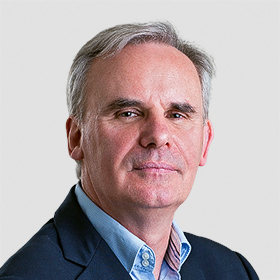Russia had tested whether door handles could be used to deliver nerve agents and had targeted the email accounts of Sergei and Yulia Skripal since at least 2013, according to previously classified intelligence over the Salisbury attack that has been made public.
The UK released the intelligence on Friday linking Russia to the attack on the former double agent and his daughter.
The door handle and email claims were made in a letter from Sir Mark Sedwill, the UK’s national security adviser, to the Nato secretary general, Jens Stoltenberg. It is extremely rare for the UK to make such intelligence public.
In the letter, Sedwill, who has an overview of the work of all British spy services, filled in some of the intelligence that Theresa May referred to when she made a House of Commons statement saying Russia was highly likely to have been behind the attack.
In response, the Russian ambassador in London Alexander Yakovenko announced that the embassy would be publishing its own report on the attack.
“The British Government still hasn’t produced any evidence in support of its position that would confirm their official version,” he told a press conference, at which he showed footage of Tony Blair apologising for intelligence mistakes made in the run-up to the Iraq war. “We get the impression the British Government is deliberately pursuing the policy of destroying all possible evidence.”
In his Nato letter, Sedwill said the nerve agent novichok had been developed at the Russian research facility in Shikhany as part of an offensive chemical weapons programme with the codename Foliant.
Sedwill said Russia regarded at least some of its defectors as “legitimate targets for assassination”, with the suggestion that they could include Skripal, a former member of the GRU, Russian military intelligence, who was convicted by Russia of espionage in 2004 after working for MI6.
“We have information indicating Russian intelligence service interest in the Skripals, dating back at least as far as 2013, when email accounts belonging to Yulia Skripal were targeted by GRU cyber specialists,” Sedwill wrote.
He also said: “During the 2000s, Russia commenced a programme to test means of delivering chemical warfare agents and to train personnel from special units in the use of these weapons. This programme subsequently included investigation of ways of delivering nerve agents, including by application to door handles. Within the last decade, Russia has produced and stockpiled small quantities of novichoks under the same programme.”
He said Russia had continued developing small amounts of novichok over the past decade.
“Russia’s chemical weapons programme continued after the collapse of the Soviet Union. By 1993, when Russia signed the chemical weapons convention (CWC), it is likely that some novichoks had passed acceptance testing, allowing their use by the Russian military,” he said.
“Russia’s CWC declaration failed to report any work on novichoks. Russia further developed some novichoks after ratifying the convention. In the mid-2000s, President [Vladimir] Putin was closely involved in the Russian chemical weapons programme. It is highly unlikely that any former Soviet republic (other than Russia) pursued an offensive chemical weapons programme after independence. It is unlikely that novichoks could be made and deployed by non-state actors (eg a criminal or terrorist group).”
The decision to release the intelligence is partly in response to Russia’s repeated denials that it is responsible for the attack and suggestions of alternative scenarios.
The Organisation for the Prohibition of Chemical Weapons, which is linked to the United Nations, confirmed on Thursday that a novichok nerve agent had been used in the Salisbury attack.
Sedwill wrote: “I would like to share with you andallies further information regarding our assessment that it is highly likely that the Russian state was responsible for the Salisbury attack. Only Russia has the technical means, operational experience and the motive.”
The term “highly likely” is one commonly used by the intelligence agencies when they believe something is 100% certain – since they are unwilling to express that opinion without a caveat in case of error.
“Russia has a proven record of conducting state-sponsored assassination,” Sedwill said, concluding: “There is no plausible alternative explanation.”
As well as questioning the UK’s evidence, the Russian ambassador to London complained at the continued refusal of consular access to Yulia Skripal.
“We are not allowed to see our citizens, talk to doctors, have no idea about the treatment the Russian nationals receive,” he said. “We cannot be sure that Yulia’s refusal to see us is genuine. We have every reason to see such actions as the abduction of two Russian nationals.”











